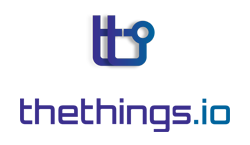Diari ARA: “Towards to a house without secrets?”
Marc Pous, thethings.iO CEO, talks about the Internet of Things scenario at Diari ARA
Last Sunday, 7th June 2015, the catalan newspaper Diari ARA published an interesting article about how Internet of Things is going to change our way of living. It was written by Gina Tost and Xavier Vidal, but it count on the participation of characters such as Luis Corrons (PandaLabs technical director), David Dueñas (sociologist) and thethings.iO CEO, Marc Pous.
What will suppose the arrival of the Internet of Things in our lives? All the information one person generates at home will be sent to the Cloud. For example, the time you have a shower, your preferences about the temperature of water, which food is missing in your fridge among dozens of tiny rituals you do at home privately. At the same time, your fridge will talk to your microwave and the coffee pot, in order to exchange information that will make our lives easier and more comfortable. Will it help us? Yes, it will. The data generated will be able to help you saving energy and, obviously, money.
But the article was also about the concepts of privacy and intimacy, and how it will change with this new technological revolution. The main question here is: In which plane will our privacy remain then?
As it is said in the article, nowadays, we all expose ourselves on our different Social Media profiles, publishing what we are doing, eating, with who we are… in exchange of social and psychological benefits. It is thought that we do not need to pay for some services we use constantly (such as Social Media), but this is just partially true. We do not pay for it with money, but we do it using another kind of chain. In this case, information or, better said, our privacy. As Marc Pous declares:
“If we focus on Gmail and Facebook cases, there has been a change in the privacy’s perception in exchange of services that did not exist before and have revolutionized the way we communicate”.
Voluntarily, we have lost our privacy in our outside life, and in a near future, it will happen with our homelife.
It is also expressed the idea of ‘risk-benefit’. It refers to the fact that we should balance if it is worth. We assume the risks to improve our quality of life. As Marc Pous said in the article:
“We will need to get used to live in a transparent society, but we will also be able to use the information we will generate to make our lives much easier”.
At this point, we will need to take into consideration what we want to be controlled and what not. To know what we eat, would help our fridge to fix a healthy diet. Otherwise, for a company to know how often we take a shower will not be necessary. Each user should feel free to share exactly what he/she wants, not more and not less.
“To connect household devices to the Internet does not mean that everyone must use it as an automaton: we need to understand the value that generates to us and use them just in case that they are useful for us”, states Marc Pous.
Most of the data generated can be useful for companies, not in an individual way, but as a target group or (potential or actual) consumers. In the marketing field it is interesting to get information in real-time about the users of a product, and with IoT it can be even easier!
But nowadays, the tendency in here is to have one unique device that fits all the data from the other connected-ones in your house. As Google did with Nest, a thermostat that can also compile other devices’ data and send it to a central server via Internet. People are looking for
“a cloud that accepts the data in real-time using different communication protocols from all devices that we have connected to the Internet”, says Marc Pous.
And what about you? Do you think it is worth to sell information (or your privacy) in order to improve your life by using the Internet of Things?




